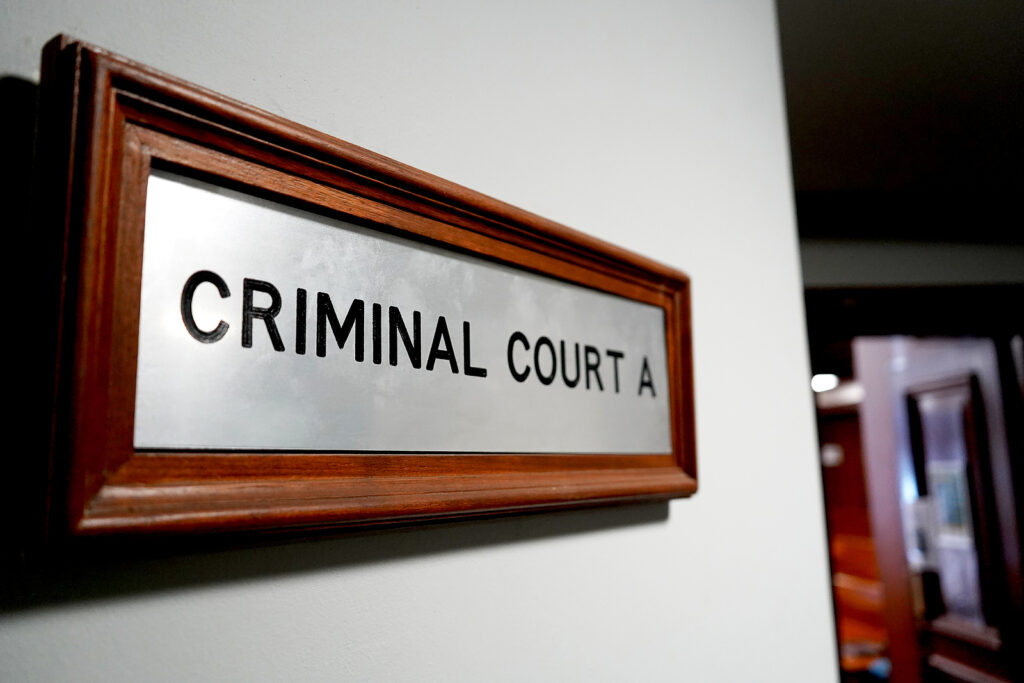Being arrested, or even experiencing the arrest of another person, can be a traumatizing event. Upon an arrest, it is common to feel an influx of anxiety, concern, fear, and various other emotions. But more often, people under arrest, or have just arrived home after being bailed out of jail, or simply filled with questions. Continue reading to learn what you can expect from the Indiana criminal justice process following your arrest, and who you need to call for aggressive criminal defense that can reduce or dismiss your Indiana criminal charges.

The Basic Stages of a Criminal Case
Although it may differ from state to state, here in Indiana, all criminal cases start with the arrest, whether that be a physical arrest, an indictment, or an arrest warrant. Following an arrest, the preceding stages are bail, arraignment, preliminary hearing, pretrial motion, trial, sentencing hearing, and if applicable, an appeal.
Bail
A person is arrested, they are eventually given the opportunity to post their bail. To do this, you would contact a local bail bondsman and follow their instructions. There is a nonrefundable fee for a bail bond, and you will be required to sign a legally-binding contract that holds you liable for the full bond amount in the case that the defendant fails to appear for their scheduled court date.
If you are turning yourself in for an arrest warrant, meaning you are the one that is to be arrested, you can contact a bail bondsman ahead of time for prearranged bail bond service. This will get you in and out of jail much faster.
If a person is arrested under the influence of drugs or alcohol, they will not be eligible for booking until they’re sober, and they cannot get bailed out of jail until they are booked. Jails usually wait 6 to 8 hours before booking and intoxicated inmate into the system. So, you will need to wait at least six hours before even attempting to bail and intoxicated person out of jail.
Arraignment
The defendant’s first court appearance is called the arraignment. This is simply a court hearing to notify the defendant of their official criminal charges, generally read by the judge, and allow the defendant to plead guilty or not guilty to their charges.
Preliminary Hearing
Depending on whether a defendant is facing state or federal level charges, charges may be brought against them either through a “bill of information” secured through a preliminary hearing, or grand jury indictment. States can use either process, while the federal government uses grand jury indictments. Basically, a preliminary hearing (or in a federal case, grand jury) is held to establish that enough probable cause exists to pursue criminal charges against the defendant. During this hearing, both sides question witnesses, present evidence, and make their arguments. Preliminary hearings are also called preliminary examinations. In the case of grand jury, only the prosecutor is heard.
Pre-Trial Motion
A pretrial motion is held right before the trial. It is intended to give both the prosecution and defense attorneys an opportunity to resolve any lingering issues, and confirm which pieces of evidence will and will not be admissible at trial.
Trial
At the trial, a judge or jury will find a defendant guilty or not guilty. Since the prosecution is the party that holds the burden of having to prove the criminal case, they are responsible for proving beyond a reasonable doubt that is the defendant guilty of the charges being brought against them. During this hearing, you can expect opening and closing statements, cross examinations, witness testimonies, and ultimately a verdict. When mistrials declared, they happen during pretrial motion hearings.
Sentencing
After the trial, the defendant will then attend their sentencing hearing. During this hearing, the judge and jury panel will decide which punishments are appropriate for their particular criminal conviction, and then the judge will officially sentence the defendant to those penalties. Such penalties can include fines, committee service, jail time, and more.
Appeal
In the case that a defendant believes they were wrongly accused or convicted, they can choose to file an appeal and applet court. This means that their criminal case will be reviewed by a higher court, one that may decide to reduce or reverse their conviction if they find any errors or unconstitutional elements that took place in the case.
Are you looking for a qualified and skilled criminal defense lawyer who will fight your criminal charges and keep you out of jail? Contact the Law Office of David E. Lewis at 317-636-7514 to schedule a free consultation with a seasoned Indianapolis Indiana criminal lawyer who will build you a strong and impactful defense.
You Might Also Enjoy:
What is Going to Happen at My Pre-Trial?
What are My Rights at Trial?
Proper Conduct for a Trial Witness



